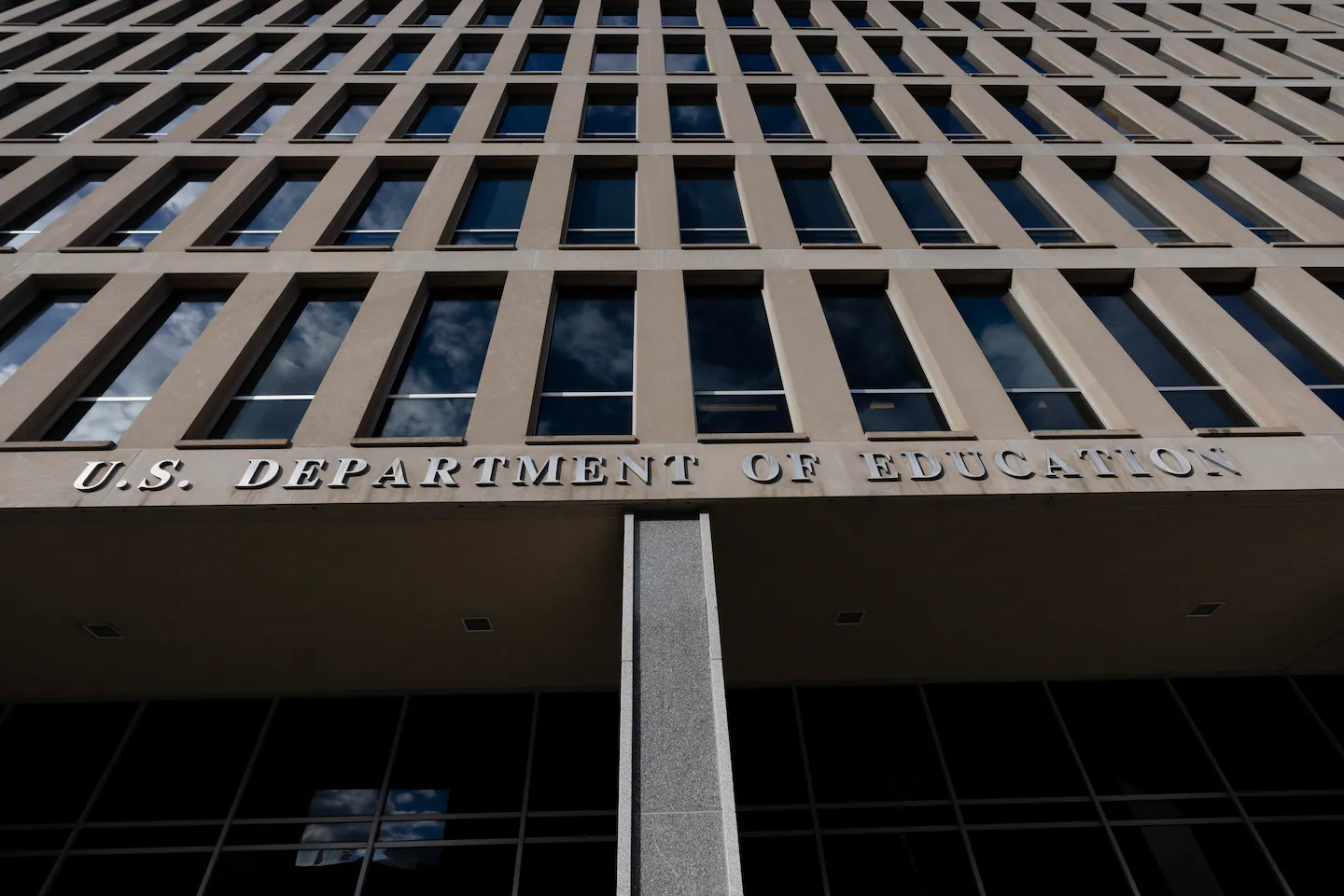
“Now it’s time to effect change nationwide, not on a one-off basis,” said a senior White House official, who like the other official described the plan on the condition of anonymity because it is still being developed.
Under the current system, the federal government’s vast research funding operation awards billions of dollars’ worth of grants based on peer reviews and scientific merit.
The administration says it is working to enforce civil rights laws, which it contends many universities have violated by embracing diversity, equity and inclusion programs or failing to adequately protect Jewish students or staff from antisemitism. But the effort is almost certain to add to criticism from outside experts who say the administration is already overstepping its authority to try to impose its values on higher education.
Ted Mitchell, president of the American Council on Education, said the outlines of the proposal amounted to an “assault … on institutional autonomy, on ideological diversity, on freedom of expression and academic freedom.”
“Suddenly, to get a grant, you need to not demonstrate merit, but ideological fealty to a particular set of political viewpoints. That’s not merit,” he said. “I can’t imagine a university in America that would be supportive of this.”
Since President Donald Trump returned to office in January, his administration has launched investigations of and pulled research funding from universities including Columbia, Harvard and UCLA, and then worked to extract concessions in exchange for restoring the money. Officials say the punishments are an effort to enforce federal laws that bar funding for schools that discriminate on the basis of sex, race or national origin.
The White House has faced setbacks in court – including a big loss this month in its high-profile fight with Harvard and another setback this week in California – and has not reached as many settlement agreements as Trump officials had hoped for.
The senior White House official described the new system as an opportunity for schools to show they are in compliance, as interpreted by the administration. Those that do so, the official said, would be rewarded with a “competitive advantage” in applying for federal grants.
“I think there will be an opportunity for universities to be forward-looking and … state their positions out loud: What are the things that you believe? What are your values? How are you providing value to students?” the official said. “And that will be something that not only is important to the administration … but it’ll be super impactful for students too.”
The official said the administration also would continue to launch investigations of individual universities that it believes are in violation of civil rights laws.
Erwin Chemerinsky, dean of the University of California at Berkeley’s law school, said “no one will object” if the White House simply requires universities to pledge compliance with existing law.
But Chemerinsky, one of the attorneys representing UC researchers in a lawsuit challenging terminated federal research funding, also said the administration’s view of what the law requires could be at odds with other interpretations: “It all depends on what the conditions are, and whether those conditions are constitutional.”
Chemerinsky said it would be a First Amendment violation to put schools at a disadvantage in competing for funding if they profess a belief in diversity, for example, because government is not allowed to discriminate based on viewpoint. He said it “would be very troubling” if the White House proposal deviates from the standards that have been used in awarding grants based on the quality and importance of the science, peer review and merit, and uses ideology as the judgment standard instead.
The senior White House official said that “in theory” all universities would remain eligible for grants but that some would have an advantage. The second official said details on how the new system would interact with the traditional grant-review process were still to come.
The administration hopes to launch the new initiative, including the list of things that universities will be asked to affirm, within the next few months, the senior White House official said.
“It’ll be a whole range of what it means to be a really excellent institution of higher education,” the official said.
Part of the plan would include asking universities to affirm that they are not considering race in admissions, which the Supreme Court has ruled unconstitutional. Universities maintain that they are no longer doing so, but the Trump administration suspects many schools are using proxies for race to, in its view, illegally cling to their diversity goals.
Some selective universities have tried to build racially diverse classes by admitting more lower-income students or by targeting recruitment in high schools with high concentrations of Black and Hispanic students.
In addition, universities sometimes admit students based in part on other qualities. For instance, they might consider nonacademic factors such as whether someone is being recruited as an athlete, demonstrated leadership, overcame hardship or has a parent who attended the school.
Conservatives inside and outside the administration also contend that universities, aiming to diversify their faculty, frequently break the law by considering race in hiring.
The two officials did not say exactly what universities would have to affirm regarding foreign student admissions, but the first White House official cited the goal of assuring that the schools are not “importing radicalism on campus.” It also was not clear what the metric for costs would be, but the Trump administration has frequently said that with costs spiraling, universities should show they are delivering students a strong return on their investment.
Asked to clarify how cost would be judged, the second White House official said: “Universities have become bastions of bureaucracy and waste, loading students with exorbitant debt all to provide them with a useless degree in a frivolous major. That is not the mark of a great university.”
Three universities targeted by the Trump administration early this year have made some concessions in recent months to get their funding restored.
In July, the University of Pennsylvania agreed to certain terms regarding transgender athletes in exchange for the restoration of $175 million in federal funds.
Later that month, Columbia University leaders reached a settlement with the administration to restore more than $1 billion in federal funding, agreeing to pay more than $200 million to settle claims of discriminatory hiring and antisemitism and agreeing to some oversight by an independent monitor, but not admitting wrongdoing. The university’s acting president said nothing in the agreement allows the government to dictate hiring or admissions decisions or the content of academic speech.
Brown University said it would pay $50 million over the next decade to workforce development organizations in Rhode Island, along with other concessions, while denying any fault or violation of federal law.
Talks are ongoing with others, including the University of California system.
While critics complain that the administration is trying to bully schools into adopting Trump policies, some allies of the White House have suggested the schools are not having to change much at all. Earlier this month, conservative activist Christopher Rufo urged the White House to draw a tougher line.
“Sources are telling me the deal terms are degrading and the WH is at risk of getting rolled by the university presidents,” he wrote on X. “Time for a return to principle: President Trump has all of the leverage and should insist on significant reforms.”
The second White House official rejected any suggestion that the new approach was motivated by disappointment in the strategies to date. The current approach has been “very effective” in pushing positive changes on campus, the official said, pointing to the agreements with Columbia, Brown and Penn.
“These schools are now embracing common-sense policies, restoring merit-based admissions, protecting their students and fostering safe learning environments,” the official said. “This new approach allows more schools to make positive changes quicker.”



